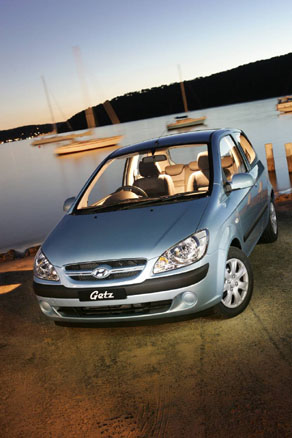
And it was pretty awe-inspiring to see how the events of this place sparked a faith that spread throughout the world. On this day, there were hundreds of what appeared to be Indians and Pakistanis worshipping at the church, including these two lighting candles for prayer:

But the serenity of this sanctuary was soon shattered as we descended into the cave that makes the city famous. It hardly seemed pious to be so pushy at this holy site:

The cause for the crowding was the Star of Bethlehem, an ornate plaque dating from the fourth century that marks the presumed place that Mary delivered Jesus before he was set in the manger nearby. The people in line knelt to kiss the spot, probably not thinking, like me, about the fact that afterbirth likely landed here, too:

After birth inevitably comes breastfeeding, so we continued on to the Milk Grotto, where legend holds that a drop of Mary's milk, which dropped as she stopped to nurse Jesus as they fled from King Herod's baby-killing soldiers, turned the rock unnaturally white. The custom today is for women to chip off some of the shrine's wall to give them luck in fertility. I kept my hands in my pockets, but I did see a member of this party scrape some off, for what reason I'll never know:

No Christmas visit would be complete without some consumerism, so our guide took us to a olive wood-carving factory and store, where we bought requisite souvenirs (a candlestick and a bell). I was able to refrain from splurging on this impulse buy:

After blowing our cash, we stand-shopped through the Palestinian souk, which intermittently included blow-up Santas and hand-knitted stockings. The most eye-catching store, though, had to be this one, smack dab in the middle of Manger Square:

Besides this sign, very little else about Bethlehem aroused the Christmas spirit. Workers were only just putting lights on the trees, to prepare for the Christmas Eve concert. Perhaps it would've been more festive when they were turned on at night. But we didn't stick around that late, because we had to get back for a true Christian tradition: the staff holiday party. So I settled for staring up at this one sad, small, strung-out collection of ornaments:






























 This is the walkway I will stumble down after a night of nightclub crawling in Haifa.
This is the walkway I will stumble down after a night of nightclub crawling in Haifa. This is the yard where my dog will get treats -- Beggin Strips, not real bacon, of course -- for not peeing on the birdbath.
This is the yard where my dog will get treats -- Beggin Strips, not real bacon, of course -- for not peeing on the birdbath. This is where Tim and I will film our low-budget porn if Tel Aviv is beyond our cost of living. The chandelier and black laquer entertainment center just beg for it, don't you think?
This is where Tim and I will film our low-budget porn if Tel Aviv is beyond our cost of living. The chandelier and black laquer entertainment center just beg for it, don't you think? This is a better view of the black laquer entertainment center, with my landlady in the background. We have not yet told her about our potential "in-home small business."
This is a better view of the black laquer entertainment center, with my landlady in the background. We have not yet told her about our potential "in-home small business." This is the bedroom cabinet where we will store the video equipment, for easy access for the scenes that require a mattress.
This is the bedroom cabinet where we will store the video equipment, for easy access for the scenes that require a mattress. This is the nice, big window in the bedroom that is great for its natural light but is horrible for the potential peeping Toms, especially during filming.
This is the nice, big window in the bedroom that is great for its natural light but is horrible for the potential peeping Toms, especially during filming.